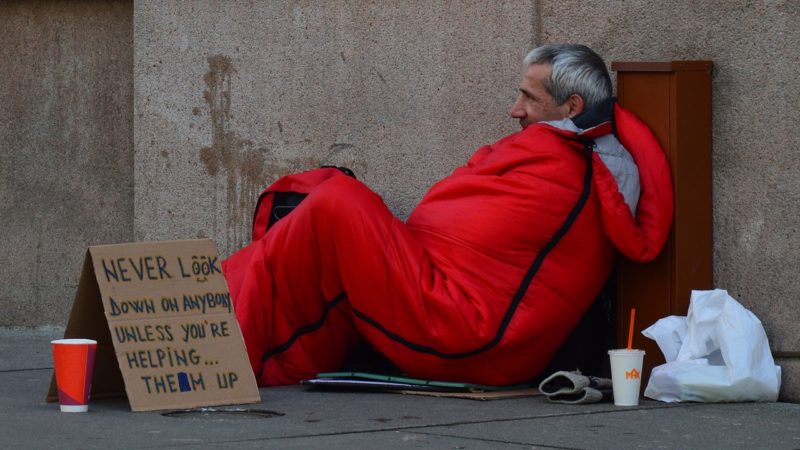They suggest rough sleeping in London is increasing not decreasing.

A homelessness charity has said that government figures suggesting rough sleeping is declining in London are misleading.
The Ministry of Housing, Communities and Local Government claimed there was an 11% decrease in rough sleeping in Autumn 2019 compared to the previous year.
However, Rachael Lindsay, a spokesperson for The Glass Door charity said, if there’s less people on the streets in the winter, that’s because more people are staying in emergency night shelters run by charities.
Lindsay also said that the date on which the government does its Autumn count can skew its findings. The government reaches these figures by counting every rough sleeper in a borough on a single night at some point in October or November.
The government will not say on what nights the count took place. But the exact date of the counts can make a huge difference. Later in the year, the winter night shelters open up and take more people off the streets.
For example, Glass Door opened its shelters to 170 people across London November 4th 2019. So if the count was done on the November 3, there would be 170 more rough sleepers than there would on November 4.
Other shelters in London would have opened on similar dates, taking more people off the streets and off the rough sleeping statistics. The government claimed there were 4,266 people sleeping rough in London, down by 411 people or 9% on the year before.
Lindsay also said that the capacity of London’s emergency shelters was increasing every year. For example, Glass Door could shelter 40 people more in 2019 than 2018 – so that’s 40 people taken off the rough sleeping statistics.
Instead of declining, evidence from Glass Door indicates that the number of rough sleepers continues to grow. In the first 90 days of Glass Door shelters opening this winter, there was a 24% increase in demand for Glass Door shelter. The year before, Glass Door experienced a 42% increase in demand for shelter compared to the year before.
Glass Door’s Chief Operating Officer Lucy Abraham said: “These figures matter because they are used to allocate resources to tackle homelessness in London. If the government is committed to measuring the number of people who need support around their homelessness, they need to recognise those sleeping in emergency winter night shelters.”
Figures compiled by the Office of National Statistics suggest that there was an 11% increase in homelessness in April-June 2019. Rough sleeping differs from homelessness as homeless people can have a roof over their head while rough sleepers do not.
To reach hundreds of thousands of new readers we need to grow our donor base substantially.
That's why in 2024, we are seeking to generate 150 additional regular donors to support Left Foot Forward's work.
We still need another 117 people to donate to hit the target. You can help. Donate today.



